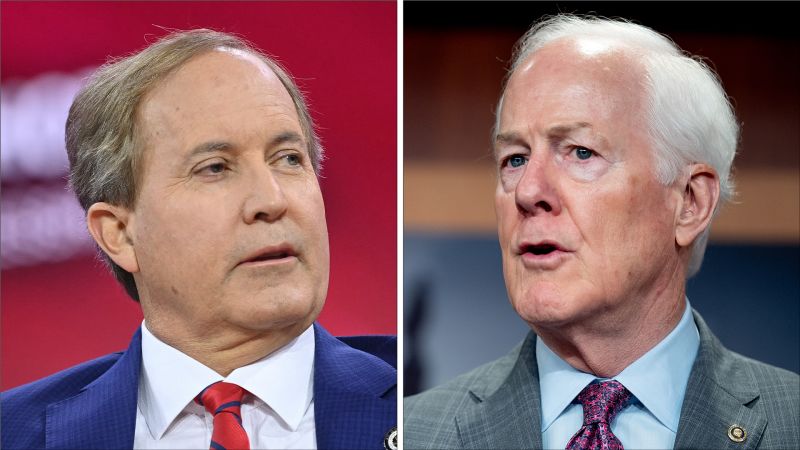The political landscape in Texas has become increasingly contentious as Republican officials intensify their efforts to compel Democratic lawmakers to return to the state legislature. Texas Attorney General Ken Paxton, who is aspiring to unseat incumbent U.S. Senator John Cornyn in the upcoming Republican primary, has taken drastic steps to disable the Democratic quorum. This conflict revolves around the approved redistricting plan that the Democrats are stalling by leaving the state, which raises essential questions about legality and political strategy.
In pursuit of his objective, Paxton announced plans to request the Texas Supreme Court to disqualify 13 absence Democrats from office. He claims that these lawmakers have “made incriminating public statements regarding their refusal to return,” implying that their statements confirm the reasons for his legal motions. This unprecedented move echoes a similar action by Governor Greg Abbott who attempted to remove Rep. Gene Wu, the House Democratic leader, indicating a broader consensus among Texas Republicans that legislative maneuvering is acceptable in this politically charged atmosphere.
Additionally, Senator Cornyn has engaged the support of the Federal Bureau of Investigation, seeking assistance to locate the absent House Democrats. He recently shared that FBI Director Kash Patel has assigned agents from Austin and San Antonio to address this request, though it remains murky what the FBI’s role would be, as it does not appear that the Democrats have violated any federal laws with their exodus from the state. Nonetheless, the Democratic lawmakers refuse to return amidst what they claim to be intimidation tactics from Republican officials.
The ongoing standoff not only showcases the power struggle over redistricting but also serves as a flashpoint affecting U.S. Senate primaries from both political parties. On the Democratic side, various members of the party are buoyed by their recent actions and aiming to rally support against the ongoing redistricting efforts. Notable figures include former U.S. Representative Beto O’Rourke whose political action committee, Powered By People, has raised funds to support the travel costs of the Democratic lawmakers who are strategically evading the quorum.
Amid these hostilities, the tone of the public discourse has become quite assertive. Rep. Wu, speaking at a press conference in Illinois, stated defiantly, “We will not be broken by these antics,” emphasizing that the Democrats are unified in their strategy. Similarly, Rep. John Bucy III declared via social media that he remained resolute in not backing down, embodying the defiance of his party members amidst ongoing legal and political pressures.
Paxton’s aggressive legal assaults include an emergency petition in Illinois requesting civil arrest warrants for the absentees. Texas House Speaker Dustin Burrows has signed those warrants, which complicates the dynamics of interstate politics. Burrows also announced that punitive measures would come into effect against lawmakers who do not return, including withholding a portion of their operational budget, restricting their requests to physical appearances, and threatening cancellation of personal resources should they fail to comply with demands.
Governor Abbott has signaled that Democratic lawmakers cannot simply wait out the redistricting plan, promising that he would continue to call special sessions until the legislative agenda is accomplished. The process of calling special sessions can be tiring and complex, intended to exert pressure on those defying the majority.
Overall, the continuing disagreements over redistricting are not merely procedural but represent deeper philosophical divides about governance, representation, and the lengths to which parties will go to achieve their objectives. With both sides exhibiting high-stakes strategies and underlying tensions, Texas is experiencing an emboldened political environment reflective of national trends where democracy is being challenged by partisan maneuvering.
As tensions mount, the coming weeks are likely to reveal much about the durability of these strategies and the resilience of the Democratic lawmakers as they continue to leverage their absence to avoid unfavorable legislation. In this rapidly evolving situation, the public and political analysts alike will be watching how this unique standoff unfolds, with implications destined to reverberate beyond state lines.











